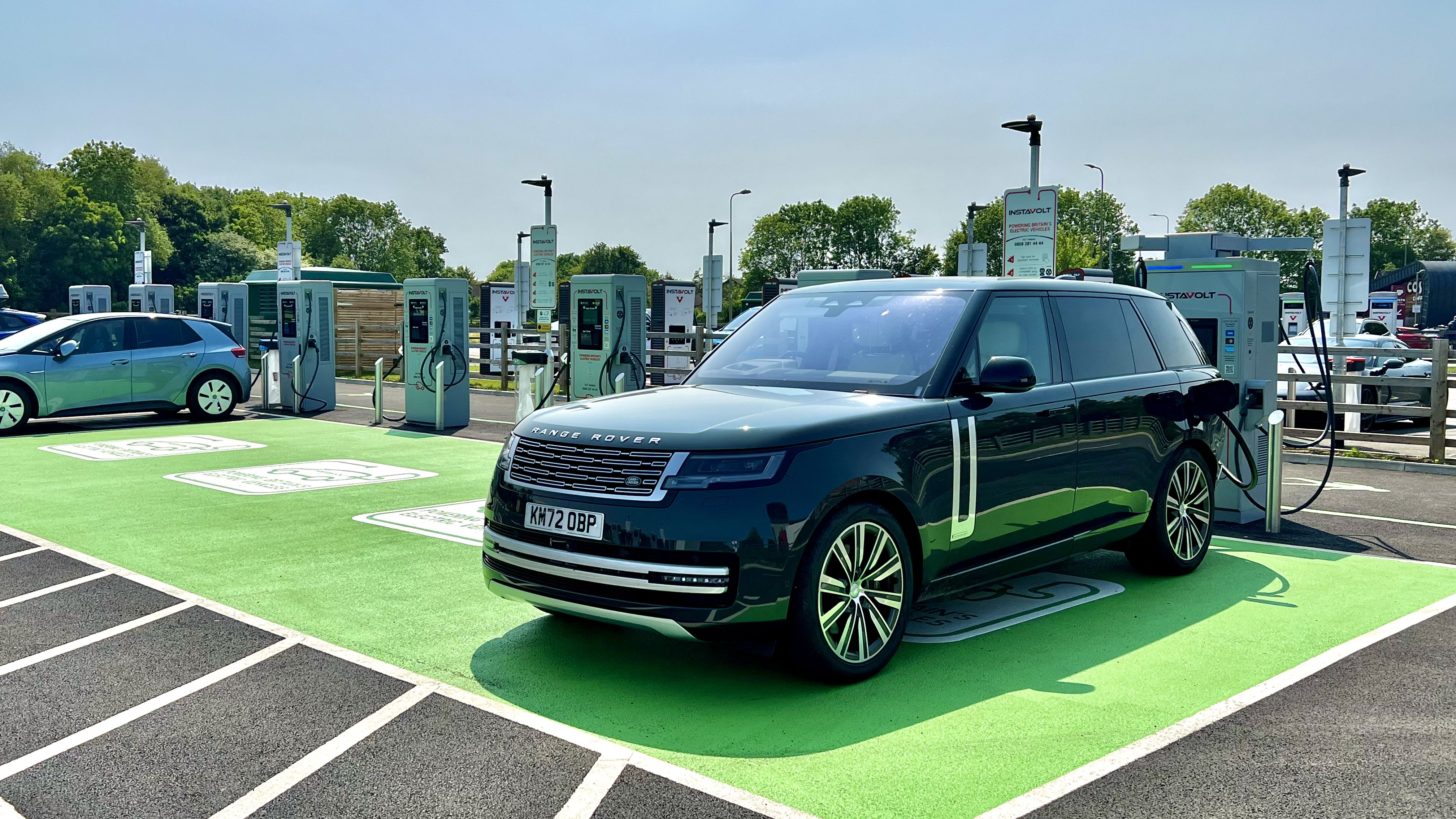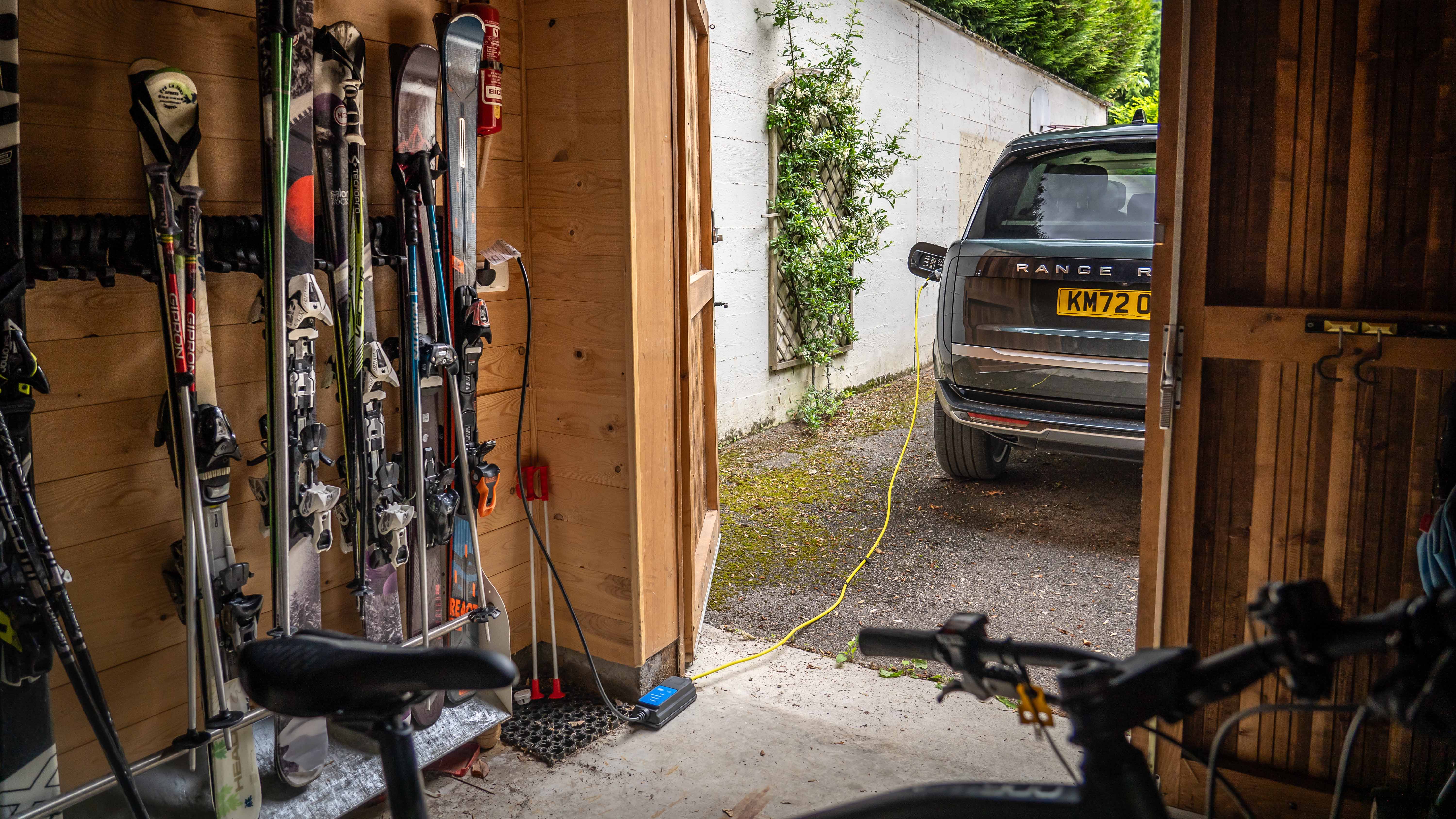
Range Rover P400e Autobiography - long term review
£137,435 / £144,175 / £1,650pcm
SPEC HIGHLIGHTS
- SPEC
Range Rover P400e Autobiography
- ENGINE
2996cc
- BHP
440bhp
- 0-62
6s
Here's why a hybrid powertrain *really* suits the new Range Rover
We don’t talk much about people reverting from electric to petrol, but it happens. The future isn’t for everyone seemingly. I’ve run electric cars, and charging is often frustrating and stressful. Not if you’re driving a hybrid though. You always have the petrol to fall back on. Now, recent surveys have revealed what we all knew already: that those who buy full hybrids (often as a low emission tax dodge) often don’t charge them up. Shock, horror etc. They’re dragging all that extra weight around for nothing and this makes them amongst the least efficient cars around.
Step forward this Range Rover and some research. I did a tankful on petrol alone recently and with the battery depleted it averaged 23.8mpg. You are getting some electric assistance because it does recharge a bit under braking, but not a lot. Fuel costs worked out at 30.4 pence per mile. After that, I drove it about only on electric. On a full charge it did 48 miles in mixed driving (57 miles when I sat it at a steady 65mph). At home, the 30.9kWh of electricity needed to replenish the battery cost me £11.74, which works out at 24.4 pence per mile (at a measly average of just 1.55 miles per kWh).
Even though it’s surely amongst the least efficient electric cars, it’s cheaper to run the Rangey on electric than petrol. Until you go to a public charger, where all this falls to bits. Which is why you never see hybrids at public chargers. Most are now twice the price of home charging. Here a full charge cost me £22.86, and suddenly we’re looking at 47.6 pence per mile.
So why do it when, fiscally speaking, it makes no sense at all? A few reasons. I quite enjoy the baffled/bristling looks of ‘real’ electric car drivers, I enjoy the Rangey’s extra silence and smoothness on electric, the improving mpg figures in the trip computer. But mainly I do it because it feels good to recharge. It may not take long to fill up with petrol (about as long as figuring out the charger in some places), but it’s a dirty, smelly business that involves greasy hands and greasy forecourts. But recharging seems magic, because it happens while you’re not there.
As a result the Rangey hasn’t been averaging 23.8mpg, but 41.7mpg. And that makes it about the most efficient Range Rover there’s ever been. If you drive it right. Potentially. And yes, I have my fears that there’s not a single other Range Rover hybrid anywhere in the UK that’s being driven like this. And more yes, I know the combined cost of petrol and electric upsets the financial applecart. But all of that pales alongside the fact that hybrid really suits the Range Rover. It really does. It annoys me when sometimes it refuses to kick into EV mode when it ought to, or fires the petrol when there’s no need. And e-acceleration is painfully slow. This isn’t as modern to drive as the sleek lines suggest. It still heaves to when it tacks around corners, so it’s best to go slow and gentle with it.
Rather than tearing about, treat yourself. Need a roadside splash ‘n’ dash? Grab a coffee, do some emails and when you come back the 50kW charging speed means you’ve added 25 miles. I had a meeting in Bristol the other evening, so charged in a multi-storey and got almost all the way home on electric. That felt good. As you’ll read soon, I’ve just got back from France where I charged overnight in Airbnbs on regular plugs. Free fuel. Should feel a bit guilty about that, but the prices they’re charging…
Featured






